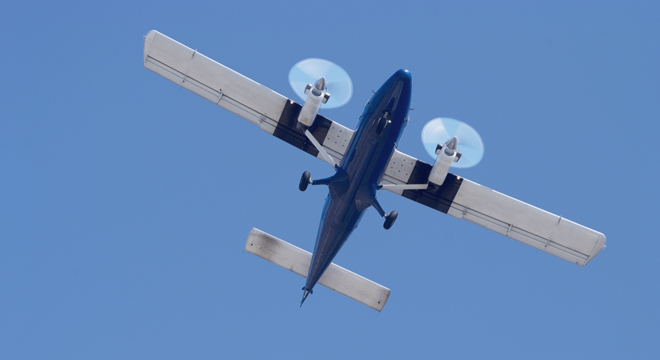The Drug Enforcement Administration needs to keep their undercover aerial operations targeting narcotics trafficking along the Mexican border and in foreign countries a bit more hush-hush, according to a new report from the Justice Department’s inspector general.
As of March, DOJ investigators searching the FAA aircraft registration database were able to find records of 25 domestically-based DEA aircraft that “should have been registered covertly to fictitious or cover organizations but that were not.” As of Sept. 7, 13 DEA aircraft that should have been registered covertly still weren’t (TPM found five planes registered still registered to the DEA in a search of the FAA’s database on Wednesday).
Because law enforcement organizations have increased their use of planes, helicopters and drones, criminal subjects “are becoming increasing aware of surveillance aircraft,” according to the report.
“If spotted and identified as a DEA aircraft through its registration or tail number, the safety of Special Agents or confidential informants might be compromised,” the report states “Maintaining a covert identity is therefore critical to operational safety because aircraft registration information is readily available on the Internet.”
DOJ’s internal investigators were also concerned that keeping DEA aircraft at publicly accessible hangars posed a security threat. In fact, DEA employees at one hangar in an undisclosed area “known for a high-level of drug trafficking activity” told investigators that DEA aircraft kept in the shared hangar were vandalized and that the organizations that shared the commercial space with the agency changed frequently and they could not control access to the location.
The DEA did not concur with several of the recommendations made by investigators, including that they obtain private hangar space or share space with other law enforcement agencies. Investigators concluded that housing aircraft in shared hangar space “places these high-dollar resources, as well as the Special Agent Pilots and crew who fly in them, in jeopardy.” They recommended DEA consider the “potential for sabotage and the safety of the DEA’s aviation assets” when weighing whether the cost savings that result from using shared hangar space.
The Inspector General’s office also said they found the DEA’s response to one of their suggestions — that the DEA implements a mandatory pre-flight risk assessment form to ensure that pilots “are making sound decisions prior to takeoff” — “perplexing” because the DEA Aviation Division’s Special Agent in Charge “stated that the Aviation Division was
planning to implement a mandatory, formalized pre-flight risk assessment.”
Read the full report here.









